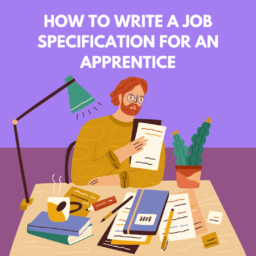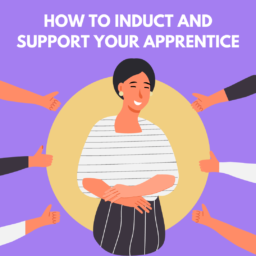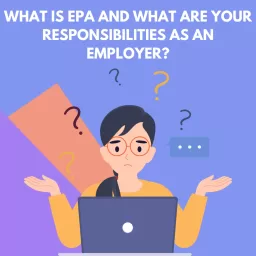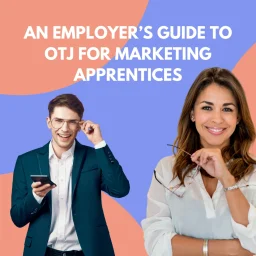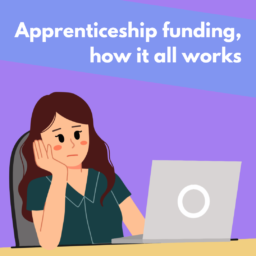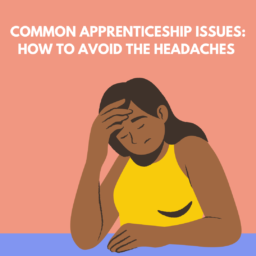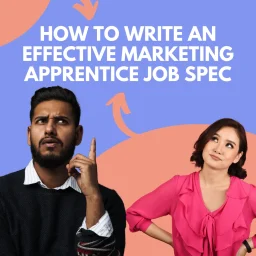Right, I’m not trying to teach anyone how to suck eggs here. But, in this article, I’m going to discuss some of the elements which will help you manage an apprenticeship interview process.
You may already be a hiring manager who has conducted hundreds of interviews and made countless offers. But, when it comes to apprentices, the game is a little different and it’s important to understand some of the nuances.
So, if this is your first rodeo, have a quick read to make sure you’re on the right page.
Don’t fall into the regular recruitment trap
When looking to hire an apprentice, it’s vitally important that you have realistic expectations.
Over my years in this industry, I’ve been part of recruitment conversations whereby employers have interviewed fifteen or more candidates because “no one has the right skills”. The major issue is that the recruiter should be realigning the employer’s expectations. But, ultimately, the employer has failed to see the point of an apprenticeship.
The most important thing to remember when hiring an apprentice is to realise that you’re getting a raw nugget of potential talent. The keyword here is potential.
Don’t go into the apprenticeship process feeling like you’re going to get a Masters in Marketing candidate with a year’s experience. No matter what the salesperson says.
If you find a gem, don’t hold off
Just like in regular recruitment, great candidates are often interviewing for other roles and before you know it they’re off the market. Apprentices are no different!
So, if you come across a real gem that you feel will be a good fit for your company and the role, make your decision as soon as possible.
Good apprenticeship candidates tend to interview for A LOT of roles and this means that you either need to stand out from the competition or act fast and hire.
As a rule of thumb, apprenticeship appointments are often based on single or two-stage interview processes and move relatively quickly in comparison to other levels of seniority.
Don’t get lulled into the slower-paced senior method of recruiting.
Critically evaluate the “must haves” vs the “nice to haves”
I get it, everyone wants to hire the perfect candidate for the role. And, with regular recruitment, you may hold out to find that one individual that fits 100% of your requirements. However, with an apprentice, you will have to make some sacrifices.
This could be something around the skills required, whether they’re able to drive, or if they have some form of synergistic experience.
Before starting the hiring process, it’s vital to establish your “must haves” and the “nice to haves”.
I would always recommend an employer’s “must haves” be something like…
- Attitude and enthusiasm: Look for candidates who exhibit a strong willingness to learn and grow within the marketing field. A positive attitude, curiosity, and genuine enthusiasm for the industry can indicate a high potential for success as an apprentice;
- Creativity and innovation: Seek candidates who demonstrate creative thinking, problem-solving skills, and a willingness to explore new ideas. This could be evident through their portfolio, personal projects, or responses to creative challenges during the hiring process;
- Strong communication skills: Look for apprentices who can articulate their thoughts clearly, both verbally and in writing, and who demonstrate active listening skills;
- Digital literacy and adaptability: Seek candidates who are comfortable with technology, have a basic understanding of social media platforms, analytics tools, and/or content management systems. Additionally, prioritise candidates who show adaptability and a willingness to learn new digital skills as the marketing landscape evolves;
- Ability to work in a team: Look for candidates who can work effectively in a team setting, contribute ideas, and collaborate with colleagues from diverse backgrounds. Assess their ability to communicate and collaborate by asking about past team experiences or through role-playing exercises during the interview process.
Timescales
Apprentice recruitment typically moves quite quickly. For this reason, it’s quite important to understand that it’s beneficial to have tighter recruitment timeframes.
Where an interview process for an experienced individual may take place over a couple of weeks, we highly recommend getting apprentices in for two stages at most and then making decisions.
Some of this relates to my point above about not holding off on gems. But, as previously mentioned, you’re not digging for buried treasure with an apprentice, but rather that raw talent that can be developed.
Don’t stretch the process out unnecessarily and risk losing people’s interest. You may even consider doing a 1st and 2nd stage during the same session to speed up the candidate process.
You’ll need to invest in systems training!
Tool and system requirements are the bane of an apprentice recruiter’s life!
Understandably, it’s important that an apprentice is able to “hit the ground running” to some extent when it comes to tools, but, this expectation needs to be brutally realistic.
Though we can often find candidates with exposure to things like Adobe or Canva, or some sort of mainstream marketing tool, it’s so important to understand that a majority of apprenticeship candidates won’t have experience and for this reason likely won’t have used the specific tools that your organisation deploys.
You will likely have to train an apprentice with those specific tools. However, there are loads of resources on the net, both free and paid, that can be used to do some of this for you.
Set realistic tasks
A while back, I was asked by a Resourcer at a previous provider if an interview task was OTT for a marketing apprenticeship role they were working on. Their immediate impressions were correct.
The task would have required the candidates to have 1. had an existing comprehensive knowledge of marketing; and 2. spend several evenings preparing their outputs which included a presentation, supporting research and documentation, and a 1,000-word declaration of why they felt they were right for the role…
It should be no shock that the employer never hired the apprentice and those that were given the task never got back in touch or outright rejected to proceed. And, rightly so.
I’d argue this said more about the salesperson who had brought the role on, but, at the same time, that the employer really didn’t understand what they really should be looking for from an apprentice.
Though I’d actually encourage employers to set some sort of interview task, I’d always recommend making it a far more basic affair, like coming up with some ideas for a social media or email project, or discussing some research they’ve done around a particular industry or competitor analysis.
To summarise
So, there we go. Some basic tips that will help you potentially re-evaluate your perception or expectations when evaluating marketing apprentices. If it’s your first time hiring an apprentice, some of the above may help you drastically in deciding on your interview process, and expectations, or setting a small task to test the general competence of candidates.



